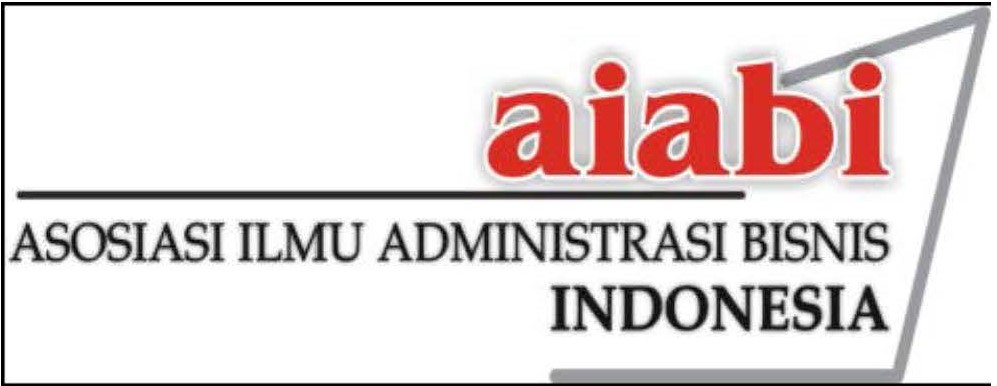ANALISIS ENTERPRENEURSHIP DAN PERENCANAAN MODEL BAGI MAHASISWA SERTA ALUMNI UNTUK MEMBENTUK PENGUSAHA UMKM
Abstrak
Entrepreneurship has an important role in the Indonesian economy, especially in terms of unemployment and poverty. The majority of unemployed in Indonesia are unemployed who have a background as a student. Therefore, an entrepreneurial incubator is needed to motivate students who have graduated from their studies to become entrepreneurs and create jobs as one of their activities. The purpose of this research is to analyze the motivational factors for achieving entrepreneurial success. This research method is carried out with a quantitative approach. Primary data sourced from the results of student and alumni questionnaires. Statistical test using reliability test, validity test, classical assumption test, and correlation regression test. The number of samples is 150 samples while the domicile areas of students and alumni are around the City and Regency of Magelang. The results showed that of the seven independent variables, there were only two variables whose results had an effect on the dependent variable. The variables of business climate, entrepreneurial competence, interest in entrepreneurship, entrepreneurial motivation, and gender differences have no significant effect on business performance. For the variables of income expectations and family environment are variables that have a significant effect on business performance.
Entrepreneurship memiliki peran penting dalam perekonomian Indonesia terutama dalam hal mengurangi pengangguran dan kemiskinan. Mayoritas pengangguran di Indonesia merupakan pengangguran yang mempunyai latar sebagai pelajar. Oleh karena itu, sebuah inkubator dibutuhkan untuk memotivasi para pelajar yang telah lulus dari masa studinya untuk menumbuhkan jiwa entrepreneurship dan membuka lapangan pekerjaan sendiri. Tujuan dari peneletian ini yaitu menganalisis faktor motivasi untuk mencapai kesuksesan sebagai entrepreneur. Metode penelitian ini dilakukan dengan pendekatan kuantitatif. Data primer bersumber dari hasil kuesioner mahasiswa dan alumni. Uji statistik menggunakan uji reliabilitas, uji validitas, uji asumsi klasik, dan uji regresi korelasi. Ukuran sampel yaitu 150 sampel sedangkan wilayah domisili mahasiswa dan alumni adalah di sekitar Kota dan Kabupaten Magelang. Hasil penelitian menunjukkan dari ketujuh variabel independen hanya ada dua variabel yang hasilnya berpengaruh pada variabel dependen. Variabel iklim usaha, kompetensi entrepreneur, minat entrepreneurship, motivasi entrepreneurship, dan perbedaan jenis kelamin tidak berpengaruh signifikan pada kinerja usaha. Untuk variabel ekspektasi pendapatan dan lingkungan keluarga menjadi variabel yang berpengaruh signifikan terhadap kinerja usaha.
Kata Kunci
Teks Lengkap:
PDFReferensi
Abidah, K. N., Baihaqi, I., & Persada, S. F. (2020). Konsep Model Bisnis Inkubasi Online dengan Perspektif Triple Helix. Jurnal Teknik ITS, 9(1): A13-A18. https://doi.org/10.12962/j23373539.v9i1.42551
Aryaningtyas, A.T., dan Palupiningtyas D. (2017). Pengaruh Pendidikan Kewirausahaan dan Dukungan Akademik terhadap Niat Kewirausahaan Mahasiswa (Studi pada Mahasiswa STIEPARI Semarang). Jurnal Ilmiah Manajemen dan Bisnis. 18(2): 140-152.
Ayatse, F. A., Kwahar, N., & Iyortsuun, A. S. (2017). Business incubation process and firm performance: an empirical review. Journal of Global Entrepreneurship Research, 7(1). https://doi.org/10.1186/s40497-016-0059-6
Ciputra (2009), Quantum Leap. Jakarta: Elex Media Komputindo
Fahmi, R., dan Amanda, T. (2017). Pengaruh Pembelajaran Kewirausahaan terhadap Minat Berwirausaha Mahasiswa. Jurnal Ekonomi dan Bisnis Islam. 2(1): 33-42.
Gebauer, H., Paiola, M., & Edvardsson, B. (2010). Service business development in small and medium capital goods manufacturing companies. Managing Service Quality, 20(2), 123–139. https://doi.org/10.1108/09604521011027561
Goldmark, L. (1996). Business Development Services: A Framework for Analysis. Diciembre. Washington DC.
Gozali, L., Masrom, M., Haron, H. N., & Zagloel, T. Y. M. (2015). Critical Success Factors of Successful E-Business Incubators Framework in Indonesian Public Universities. Https://Www.Researchgate.Net/Publication/305356952_Critical_Success_Factors_of_Successful_E-Business_Incubators_Framework_in_Indonesian_Public_Universities, 8(2), 118–131. https://doi.org/10.13140/RG.2.1.1279.8965
Hadyasti, Suryandari, dan Putra. (2020). Pengaruh Ekspektasi Pendapatan, Pendidikan Kewirausahaan, Efikasi Diri, Motivasi dan LingkunganKeluarga terhadap minat Berwirausaha. Jurnal Kharisma. Vol, 2 No. 2, Juli 2020. 174-187
Harini, Sri (2014), Pengaruh Pelatihan Entrepreneurship dan Manajemen Usaha terhadap Pendapatan Usaha Mikro Makanan dan Minuman, Jurnal Entrepreneur dan Entrepreneurship, Volume 3, Nomor 1 dan 2, September 2014.
Haugh, Helen M, dan Talwar, Alka (2016), Linking Social Entrepreneurship and Social Change: The Mediating Role of Empowerment, Jurnal Bus Ethics, Volume 133, 643-658.
Imamah, Nurul (2008.). Peranan Business Development Service dalam Pengembangan Usaha Kecil Menengah di Wedoro Centre Waru Sidoarjo. Jurnal Manajemen dan Kewirausahaan. Vol. 10, No. 2. 169–176.
Juniyanto, Donna (2019), Business Development Service, Solusi UMKM Sukses dan Taat Pajak, diakses tanggal 14 April 2020, Muda Kompas, “Business Development Service”, Solusi UMKM Sukses dan Taat Pajak | Muda (kompas.id)
Kapoor, Shikha (2019), Entrepreneurship for Economic and Social Empowerment of Women: A Case Study of a Self Help Credit Program in Nithari Village, Noida, India. Women in Business in India, Australian Accounting, Business and Finance Journal, Volume 13, Issue 2 .
Li, C., Ahmed, N., Qalati, S. A., Khan, A., & Naz, S. (2020). Role of business incubators as a tool for entrepreneurship development: The mediating and moderating role of business start-up and government regulations. Sustainability (Switzerland), 12(5), 1–23. https://doi.org/10.3390/su12051822
Listiawati, M., Dyah C.S.I., dan Susantiningrum. 2020. Pengaruh Pembelajaran Kewirausahaan dan Pemanfaatan Media Sosial terhadap Minat Berwirausaha Mahasiswa FKIP UNS. Jurnal Kewirausahaan dan Bisnis. 25(1): 27-36.
Nugroho, R. (2009). Memahami Latar Belakang Pemikiran Entrepreneurship Ciputra: Membangun Keunggulan Bangsa dengan Membangun Entrepreneur. Jakarta: Elex Media Komputindo
Pinto, Ricardo. (2004). Business Development Services How To Guide. July, 1–25. https://doi.org/10.13140/RG.2.1.3845.1925
Pujiastuti, Y., dan Filantrovi, E.W. (2018). Gambaran Minat Kewirausahaan Mahasiswa (Studi terhadap Mahasiswa STIE Bank BPD Jateng). Jurnal Manajemen. 15(2): 169-180.
Purnamasari, Wulan. (2018). Pengaruh Lingkungan Keluarga dan Minat Berwirausaha dalam Perspektif Pendidikan Ekonomi. Skripsi. Universitas Negeri Makassar. eprints.unm.ac.id
Raghunandan, Varsha (2018), Changing Equations: Empowerment, Entrepreneurship and the Welfare of Woman, Journal of International Women’s Studies, Volume 19, Issue 13. 186-198
Rahayu, Ning (2019), Apa Itu Inkubator Bisnis?, Apa Itu Inkubator Bisnis? (wartaekonomi.co.id), Selasa, 12 Maret 2019.
Rosyadi, I., Hadiyati, E., & Astuti, R. (2020). Efektifitas Pelaksanaan Business Development Service (Bds) Oleh Direktorat Jenderal Pajak. Arthavidya Jurnal Ilmiah Ekonomi, 22(2), 156–171. https://doi.org/10.37303/a.v22i2.162
Sean M Hackett, D. D. (2004). A systematic review of business incubation research. The Journal of Technology Transfer, 40(2), 50–62. https://doi.org/10.1023/B
Suarjana, A.A.G.M., dan Wahyuni, L.M. 2017. Faktor Penentu Minat Berwirausaha Mahasiswa (Suatu Evaluasi Pembelajaran). Jurnal Kewirausahaan dan Bisnis. 13(1): 11-22.
DOI: https://doi.org/10.24198/adbispreneur.v7i1.36462
Refbacks
- Saat ini tidak ada refbacks.









